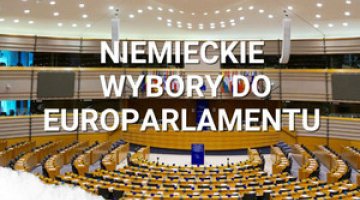Germany: the launch of the pro-Russian Wagenknecht party
On 27 January, the first nationwide congress of the Sahra Wagenknecht Alliance for Reason and Justice (BSW) took place in Berlin. Nearly 400 delegates passed the party’s programme for the elections to the European Parliament and selected their candidates. Fabio De Masi, a former prominent politician of Die Linke, tops this list. Wagenknecht, the party’s chairwoman, delivered a speech which notably included calls to bring an end to the war in Ukraine by taking steps such as ceasing support for the country. She also drew attention to Ukraine’s glorification of Stepan Bandera, who collaborated with the Nazis during World War II, which she said undermines the credibility of the current Ukrainian leadership.
Wagenknecht spent much of her speech criticising the SPD-Greens-FDP coalition as “the worst government in Europe” and trying to distance herself from the AfD. The last speaker was Oskar Lafontaine, a former finance minister from the SPD and former chairman of this party, co-founder of Die Linke and currently one of the BSW’s policymakers and he is Wagenknecht’s husband. He emphasised social issues and pacifism at all costs. In the context of Holocaust remembrance, Lafontaine criticised Israel for its military operations in Gaza (for more on the BSW’s programme, see the Appendix).
Commentary
- The smooth preparation and execution of the congress is a success for Wagenknecht, which shows that she has enlisted a group of experienced organisers. She had previously shown her weakness with logistical issues. In addition, the party has raised around €2 million, some of which has come from outside the EU, thus boosting its chances of success in the elections to the European Parliament and in the autumn elections to the Landtags of Saxony, Thuringia and Brandenburg, where the BSW can hope to win 8%, 17% and 13% of the vote respectively. Federal polls give the party, which was formally founded on 8 January (see ‘The Wagenknecht party. Germany’s new protest party’), between 3% and 7% of the votes. Those who declare their readiness to vote for the BSW are mostly supporters of Die Linke and the AfD, the latter of which is competing with the BSW for the largest group of voters.
- Both the party’s programme and statements from its leaders suggest that the campaign ahead of the elections to the European Parliament and the Landtags will focus on its calls for curtailing aid to Ukraine and launching immediate talks with Russia. There is declining public support for Germany’s commitment to Ukraine, especially in the east of the country, where 47% think that military support to Ukraine has gone too far while just 27% see it as adequate and 52% believe that financial aid to Ukraine is excessive while just 29% say it is appropriate. In this context, the BSW’s electoral tactic could prove to be effective in drawing even more supporters away from the AfD. The far right has put forward similar demands, but some voters may shift their support to the BSW as a less extremist alternative option due to the AfD’s radical slogans and the fact that it has been under surveillance by the country’s counterintelligence (see ‘Germany: mass demonstrations against the AfD’).
- The BSW’s efforts to distance itself from the AfD were an important feature of the congress. In pursuit of this, Wagenknecht’s speech almost completely omitted the migration issue, which had previously been one of the main talking points for the new party and which features prominently on both parties’ agendas. This effect was reinforced by the organisation of a rally on 27 January, International Holocaust Remembrance Day. All the speeches referred to this date as a symbol of the fight against far-right movements and condemnation of war. Despite the BSW’s rhetorical break from the AfD, future cooperation between the two parties seems likely. A good electoral result for the BSW in the eastern Länder combined with the AfD’s dominant position in each of these states could at least result in collaboration on selected issues.
Appendix. The main points of the BSW’s programme
The BSW demands an immediate ceasefire in Ukraine and the start of peace talks. It also wants to halt arms exports in order to ‘motivate Russia to enter into negotiations’. With regard to the government in Kyiv, ‘further financial support should be made conditional on its readiness to hold peace negotiations’. The party’s programme mentions ‘severe discrimination against the Russian-speaking minority before 2022’ as one of the reasons for the Russian invasion. The long-term objective is a new European order, which should include Russia as “peace and security in Europe cannot be stable” without it. The BSW calls for an end to sanctions and a resumption of trade in raw materials with Russian.
In the EU context, Wagenknecht’s party emphasises that the EU must not be dragged into the conflict between the US and China. It is in favour of measures such as strengthening the subsidiarity principle in the EU and raising the financial transaction tax. It opposes the EU’s enlargement, especially concerning Ukraine, Moldova and Georgia. It rejects an agreement between the EU and the Mercosur countries. It wants to maintain the principle of unanimity in the Common Foreign and Security Policy.
The key elements of the BSW’s domestic policy agenda include raising the minimum wage to at least €14 per hour from the current €12.41, softening the climate policy, partly by abolishing the European Emissions Trading System, and curbing migration to Germany through measures such as processing asylum applications at the EU’s borders or in third countries and reducing social benefits for those who do not have the right to protection in Germany.





